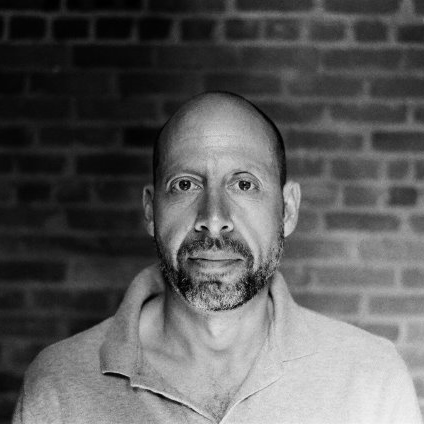
News

Taking the poetic route to seeing our way forward
RICHARD POPLAK
“If you cannot control your body and your sexual urges, there you are,” he admonished Zuma, before sending him out into the delirious “burn the bitch” crowds as a free man, all but minted as the president who would preside over another decade of South African turmoil.
Regarding a white man lecturing a black man on sexual proclivities: this was basically what apartheid was invented for. But weirder still was the fact that ten years into democracy, a jingo written by a colonial figure like Kipling was invoked in a South African courtroom at all.
Much like William Ernest Henley’s Invictus, which became doubly famous as Nelson Mandela’s favourite poem, If is an artifact of Victorian England, an ode to patriarchal stoicism set within a colonial frame.
Frumpy injunctions aside, the Kipling poem had a paradoxical impact on Western culture. Its staccato cadence prefigured the modernism that eventually rendered it a crypto-religious liturgy for Fox News anchors and the like, and so loathsome to their enemies.
Zuma’s shrunken universe has never had the space for poetry of any language or era. But immediately after uttering those lines, Judge van der Merwe laid an important milestone along the arc that describes South Africa’s presidential trajectory: from a secular Christ-figure, to a Thatcherite, to a kleptocrat, to a plutocrat who simpers before kings. It’s almost too perfect, but there it is.
Just as importantly, the trial signified the end of shame in South Africa as a social modifier. Shamelessness has now gone mainstream. The predominant feature of our time is that proud perverts and molesters hold the nuclear codes. This is a round-about way of saying that Zuma’s acquittal served as the beginning of the end of the liberal experiment that defined both Nelson Mandela’s and Thabo Mbeki’s tenures. It was replaced with an ideologically barren doctrine of nothingness.
It’s strange that an isolated country lodged at the bottom of Africa should have proven to be so accurate a global political bellwether. However, Zuma’s rise represented a commensurate fraying of the liberal fabric long before this phenomenon began revealing itself elsewhere in the world.
In the local context, the reasons for the fraying are now drearily obvious: Mandela-ism’s promise versus the reality on the ground ten years after it was inaugurated. The gulf between the two was so considerable, it could only ever lead to a populist lurch into the abyss. After all, how did the tempered, incremental, Invictus -redolent liberalism so admired by Mandela iterate itself in the South African political phantasmagoria?
As a version of apartheid.
This is no glib, anecdotal observation. Whether spatially, economically, racially, or spiritually, South Africans were taught a cruel law of the universe. That is, without the opportunity for economic advancement, political enfranchisement is all but meaningless.
There are many numerical indicators to suggest that life has improved for most South Africans since 1994, and of course it has. But there is no shortage of data to prove democracy’s manifold failures. Picked nearly at random from my news feed, here’s two little examples from beyond apartheid’s grave.
Exactly 54 mineworkers have died in industrial accidents this year. And youth unemployment hovers at about 40%.
Anyone waking up from a 25-year coma would find those statistics simply astonishing.
The disconnect between political and economic enfranchisement now defines our politics. It defines all politics, everywhere. It’s the standard that the Economic Freedom Fighter’s Julius Malema first carried into battle—“economic freedom in our lifetime!”. This cry resonated not only with the lumpen, but also with fancy-pants Chief Executives, who have come to understand the hard way that the current status quo is unsustainable. (Echoing our complete moral meltdown, their attempts to ameliorate the situation have reached comic-absurdist proportions.)
Perhaps inevitably, Malema’s attempts to forge a “revolution” from the embers of the revolution have reached a grim impasse. The party has retrofitted its pro-poor radical platform to include an African nationalism that places identity before both ideology and principle. (In fact, it now construes identity as principle.)
The battles that now consume the rump of South Africa’s left abound. These include defending the larcenous former Commissioner of the South African Revenue Service, Tom Moyane, from the assault of an “Indian cabal”; defending the “black” VBS bank from a minority-led Treasury; and defending state ownership of land.
In other words, the defence of an indefensible elite has in a single swoop invalidated the political capital the EFF accumulated during the Zuma years. This is not dissimilar to how it long ago invalidated the African National Congress and Democratic Alliance as coherent political entities.
And so, the country sizzles in the mess of a recession and in the muddle of incoherent policy proposals, most notably regarding land. And still, we can’t stare the rot directly in the face.
The Zondo Commission is, of course, the flipside of Zuma’s rape trial. It is the means the South African government is using to flay open the state-capture beast, the autopsy of a corpse that still defines our political economy.
We know who committed state capture, we know how, and yet this theatre grips the country. If anything, the Zondo Commission is at least an attempt to return shame to its rightful place in the South African social sphere.
No Kipling, no Invictus, just a uniquely South African poetry: by talking, by telling the truth, we see our way forward. It hasn’t worked before. Perhaps it will this time.




